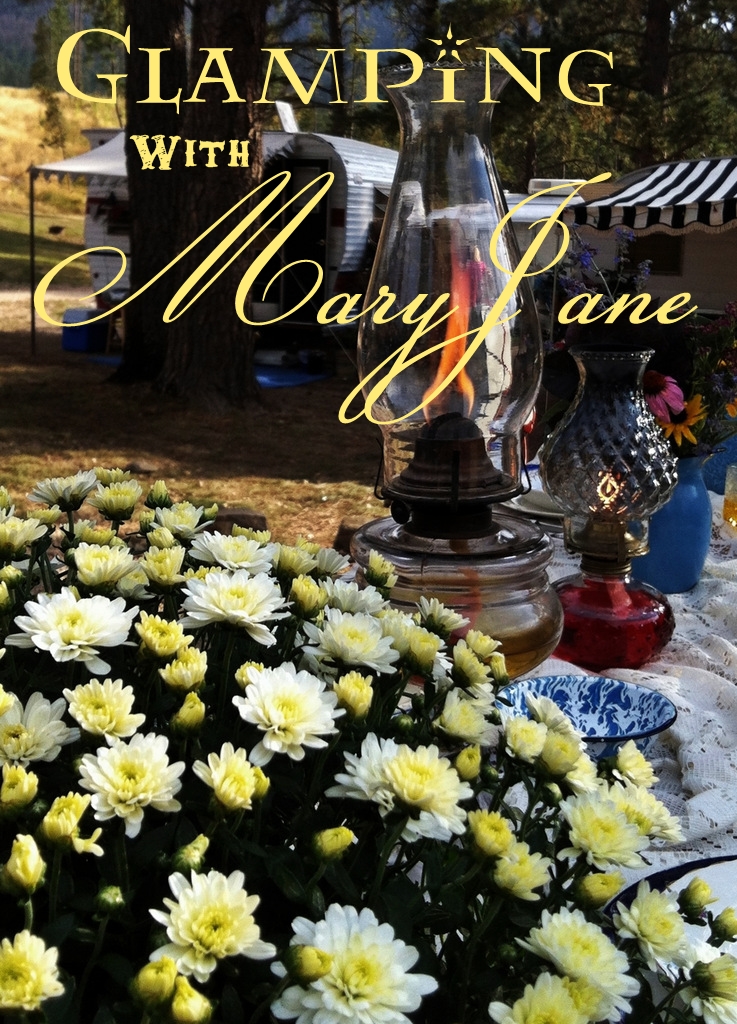
As with so many said things, it is how you say ‘it’. ((*Notice emphasis on the word ‘with’)) When we speak, we add audible emphasis where it is needed … and, probably, fitting facial expressions and hand movement. There is a new book out now, Glamping With MaryJane. Perhaps you’ve heard of it? When you see the title, you think-say in your head, rather plainly, Glamping with MaryJane. Right? No inner emphasis or bolding or caps lock. Ok, so to make my point, perceptions are based on how a thing is said. This blog post wears the same title as MaryJane’s new book, but, one little word made a huge difference for some glamping inclined farmgirls a couple of weeks ago. ‘With’ is the magic word. How so, you might ask? Here’z the big difference:
Glamping With MaryJane. No really, I mean WITH.




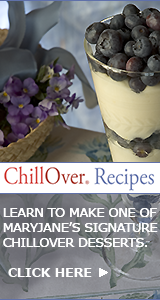

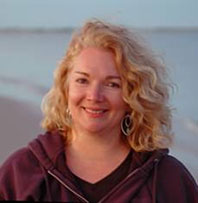


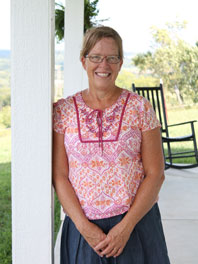
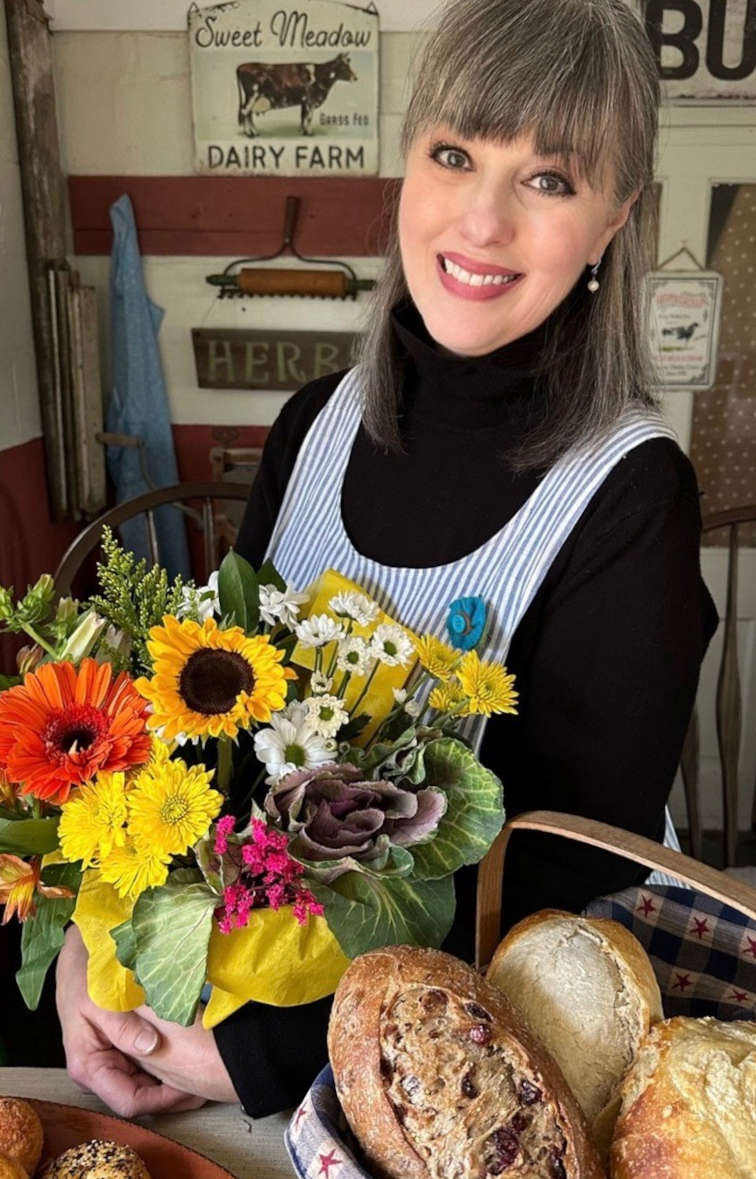
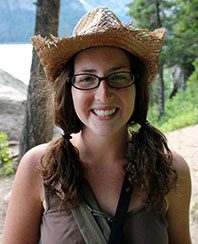
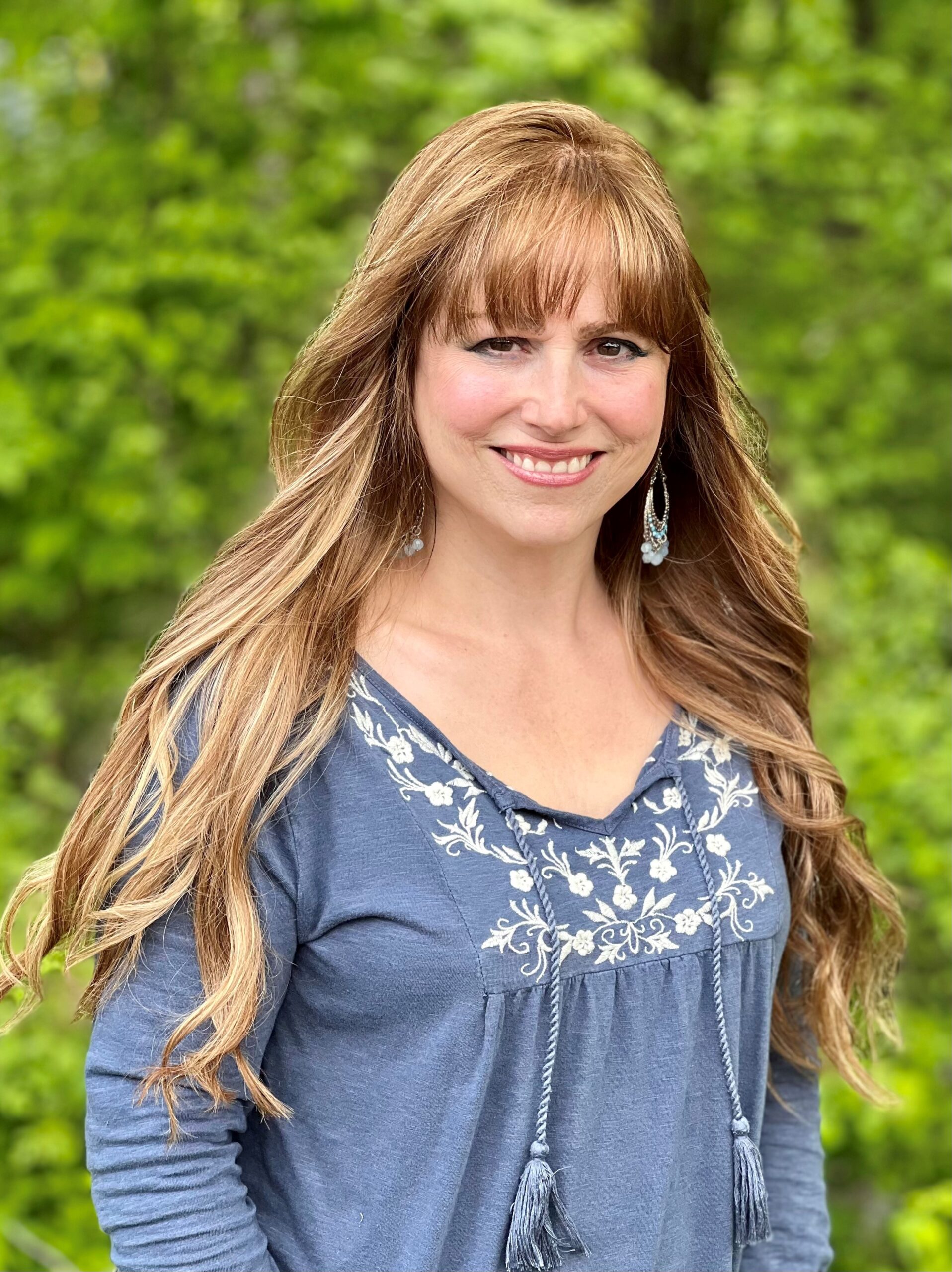
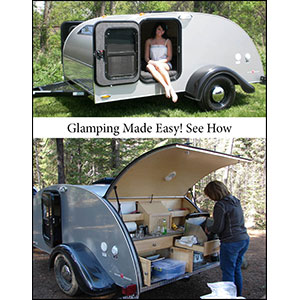

A HUGE thank you for letting us tag along on your glamping trip! Each and every one of the glampers (and glamporette’s) are fabulous! I’ve read your post twice and still can’t pick my favorite glamper…they are all adorable. What a treat to meet & glamp WITH MaryJane!
Shery:
It definitely looked like "Girl’s Just Want To have Fun!" I have been looking and seeing little suitable campers for sale all over the countryside here in Colorado. Who knows maybe I will bite the bullet and fix myself a little Glamper. Although, I have zero Arts & Crafts skills-that gene passed me by! LOL.
How’s the weather up there? We already got our first snow 2 days ago. I hope this means lots of snow and moisture this fall/winter. We usually get our first snow in mid-October.
Treese Colorado Cowgirl
—————
Hi Treese,
Hey, you don’t need to artsyfartsy your glamper. It’d be way easier if ya didn’t — not so much stuff to putz with. It looks fun when it is all nice and decorated, but it is a lot work. Way the easier to just have it ready to roll & go.
It is desperately dry here. We don’t even hope for rain anymore. I suppose one day we might get moisture again. shery
Boy! Doesn’t that make me want to get on the move. How fun!!! Liz
I cannot tell you girls how much I enjoyed your post. This was such fun for me.
My husband and I did so much camping. A year ago I lost my life long love and mate to pancreatic cancer.
The pain of watching him slowly vanish before my eyes is beyond words.
So it has taken me a while to find ME again and the one thing that keeps popping up is…I want to go camping again.
I have a Toyota Carolla so my pulling ability is limited to only 1550 lbs. That eliminates all the fun oldies and to be practical, I don’t have anyone to be a mechanic anymore.
So I have been on the lookout for a used Quick Silver , just the right weight.
Also thinking about a neat tent.
You girls have soooooo inspired me, not that I needed inspiration but lets just say
I feel like someone just opened the gate. I wanna go, go, go ! "Ride it like you stole it"
I am a shabby chic-ER and have laid awake at night ( too many nights) decorating in
my mind, my tent that I have yet to buy.
Are there any Glampers near the St. Louis area?
Thanks again girls for all the fun anyway I hope to see Jim again soon.
his name is Denny. pictures, the time it took you to create this post…it was
not in vain, because it touched my heart and made me as happy as a clam at high tide.
Hugs and Blessings,
Nancy
——————-
Oh Nancy, You made ME feel great. I write in the hope that I might make stopping by here worthy of a person’s time and maybe brighten their day for a couple of minutes. Your kind words are my reward. I’m sorry for the loss of your love. I hope that your new life on your own will soon bloom and that sleeping under the stars and dangling your feet in a cold stream is in your future.
Your glampers look great.. and you all seem to have had a great time.. glad to have done all the decals.. they look great.. and it was fun doing them..
I am smiling from ear to ear as I read this! At the end, I was tearfull because all of your experiences, words and happiness made me feel so wonderful. It was like I was there with all of you, even though I am sitting here at work, doing my thing! God has blessed you with such talents.
Sheri,
Thank You so much for sharing your first Glamping trip with your sister Farmgirls and Mary Jane.
It will be a few years before I can join in on the fun of getting a Glamper, I have an eldery husband, but in the meantime I can really enjoy the adventures of you all.
I also have Mary Jane’s new book and just love it.
I already have antique things for my Glamper. It was really delightful seeing you all have such a good girlie weekend.
Blessings.
Peggy
Wowza, kaBOWza! What a wonderful post! I can tell you ladies had a rootin’-tootin’ grand time! My dh & ds went backpacking last weekend, and as they told of their "adventures" (which involved shooting a rattlesnake and getting their boots soaking wet while crossing the river), all I could say was, "No backpacking for me — GLAMPING is more my style!" I don’t know if I would ever fix up a trailer, but I love the idea of a truck camper! Thanks again for the entertaining write-up!
———
Thank you, Nicki, Are you talking about an old TRUCK glamper? Oh, I so agree. I think that’d be awesome. We had a pickup camper too and that is so easy. All you do is drive and park. Shery
I want to move to Wyoming and meet all of you! Do I qualify as a farmgirl…? We have a chicken coop and two hens two dogs and a garden. Also, because of tough economic times, we may have to pull a mobile home on our property to live in. Well, I am actually hoping we do so I can decorate it farm girl style. I’m so glad you all got to spend time with MaryJane.
You are such a great writer…I enjoyed every word.
Jann
———
Dear Jann, OF COURSE you’re a farmgirl!! I hope things look up for your economic future. These are uncertain times we live in. Thank you for the kind words :o)
Oh Shery,
What a wonderful post! What a terrific event for you all and I’m so glad that you got to meet MaryJane. A few of us got to meet MaryJane and Meg in New York city a couple of years ago and she is everything you said and more – they both are wonderful, genuinely sweet and gracious ladies. Thank you so much for sharing your special Glamping story and pictures with us!
P.S. LOVE the apron!
Alice
Farmgirl #12
Shery, thank you for the great post. I really enjoy your posts and this one is terrific!
What a fabulous weekend you farmgirls had glamping! I just sold my tiny trailer but, she would have fit right in with all of you! I had so much fun decorating her up in her "Daisy " style as a 1963 Shasta teardrop should be!
You are definitely "Glamorous!
Smiles, cyndi
So enjoyed reading your post! Looks like good time had by all! Thanks for sharing. God Bless you all.
Wow! Thanks for sharing this wonderful trip with all of us. Cannot wait to see your friend’s truck topper camper! Love it all and since I have all of the MaryJane books you can bet this wanna be Glamper will be picking the new one up also!
Sheri: I know how much fun you had cuz I just got back from a glamping adventure in Minnesota. Not only did we glamp, we were in the New Prague Dolzinsky Harvest Day parade. What a kick. We had 20 campers on the float and beside it. You’ll see pictures later. Wow! What fun. Glad you had a great time too. Bonnie
Hi Shery! Well if this post didn’t spur the glamper fire I have burning inside of me nothing will. I have been looking around for a little glamper to call "home away from home" for a while now. I know the right one will come around when the time is right. Thanks for sharing!!!
Happy Trails!
Lisa
Hi Shery, What a wonderful post!!! I love, love all of you gals glampers. I sat with a smile on my face reading and looking at all of the pictures and wishing that I was there too. Wow, getting to meet and glamp with Mary Jane herself, what an awesome experience. I have the new book and love it!! I told my DH that I was kind of looking for an older small camper. He didn’t seem too enthused by that prospect. 🙂 I always so look forward to your posts, you have such a gift with writing and taking great photos. You always make my day a bit brighter. So happy that you got to experience this trip and shared it with all of us. Until next time…..
Oh Shery! What a worthwhile wait it was for me. You are my favorite read of all the farmgirls and this was the icing on the cake. You have kept me drooling with anticipation while watching all the transformations of the "glampers" take place. Loved all the pics and descriptions. You Made it!!!
As always you have such a knack with words – I just feel like you are here talking to me.
We used to camp back in the day (70s) when our girls were little. We had the cutest little Scotty camper and I sure wish we had it now. I would be glamperizing it!
Thanks so much for all you do to make all of us out here in cyber space feel like we are there with you.
Shery, So glad to read about you Glamping trip and I wish I were there, looks like you all had such a great time, I am in the process of looking for a camper to carry 2 people and a Yorkie. My husband says he will help fix it up. Sounds great to me. I live on the east coast of Va. probably not much chance meeting up with you all, But we can go glamping anyway. Thanks for the story and photos. Juanita
Shery, Ok, that looks like far toooo much fun. What a joy. And, my friend, you all deserved it. I did a little Glamping of my own this summer at Lake Umbagog State Park here in northern NH. Although I tent, I added some great Farm Girl Glitz to my campsite and had such a good time all by my onesey!
———-
Good 4 U, Cora Jo!!!!!!